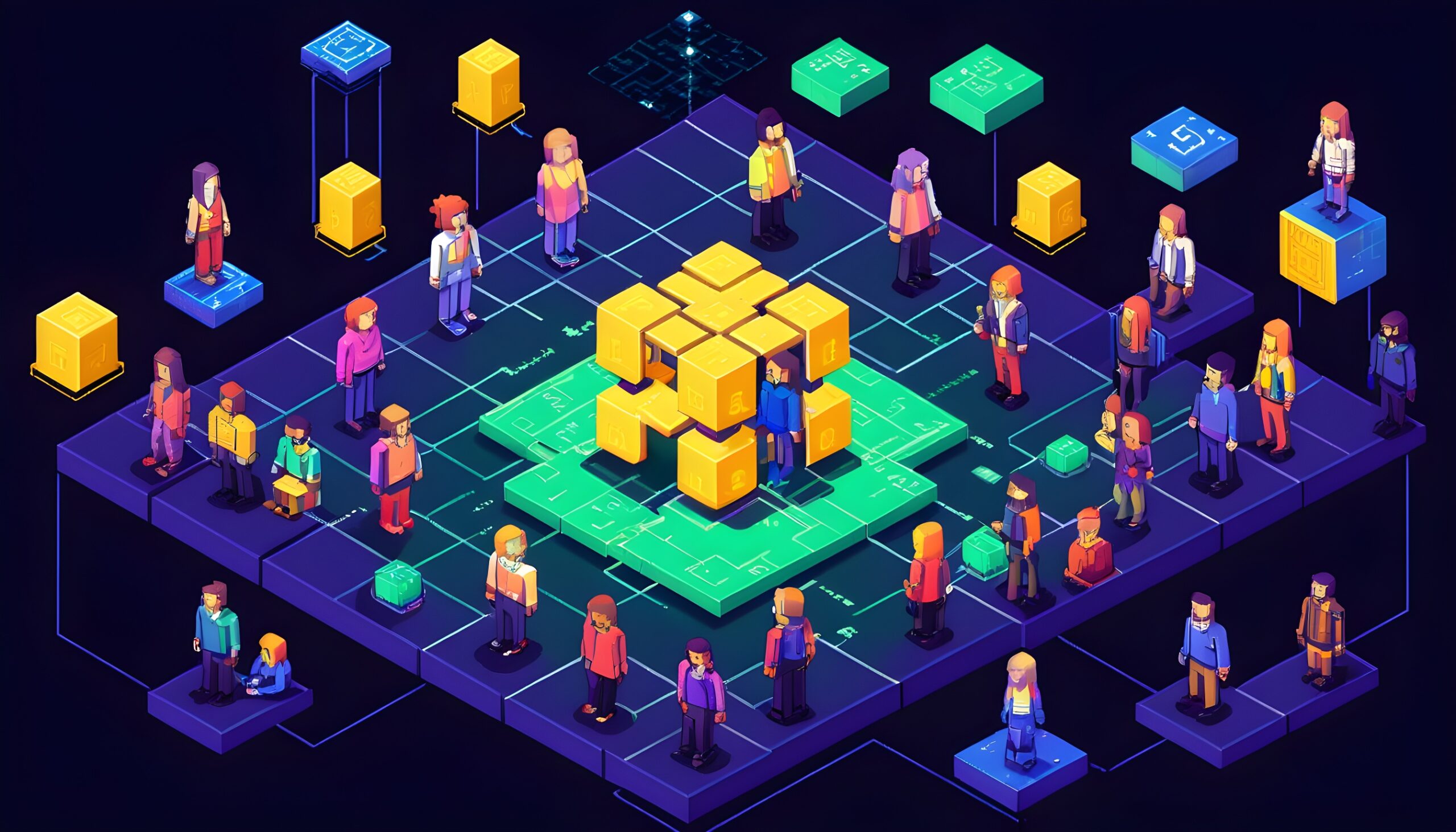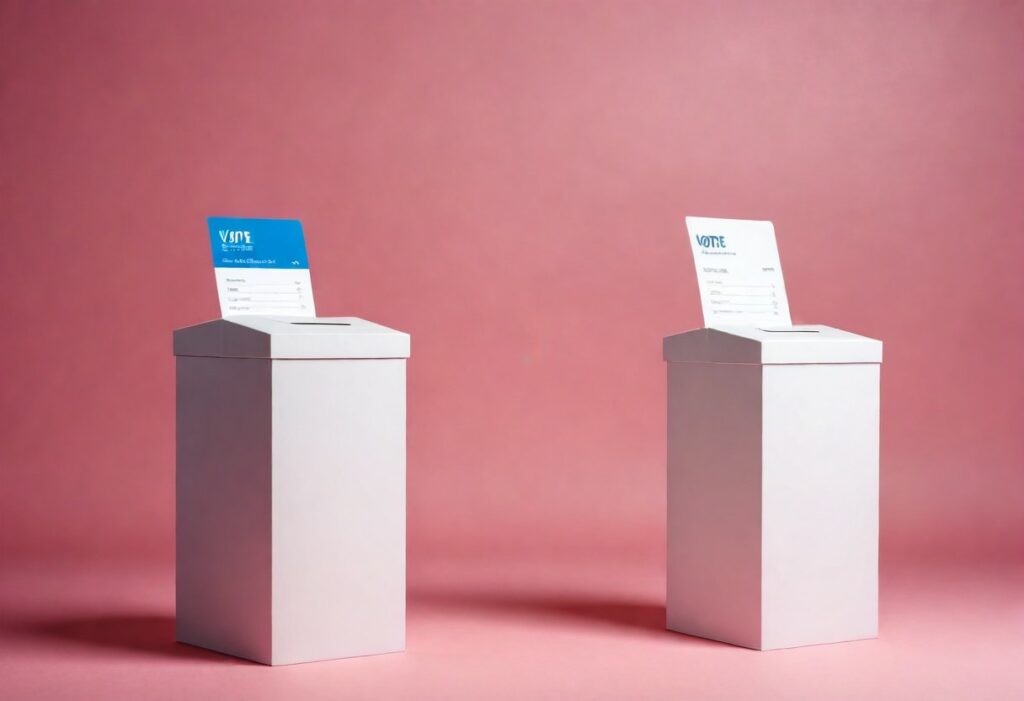The rise of decentralized autonomous organizations (DAOs) has ushered in a new era of decentralized decision-making and governance. These innovative structures, built on blockchain technology, offer a radically different approach to organizational management, where rules are encoded into smart contracts, and decisions are made through collective voting mechanisms. However, as DAOs continue to gain traction and disrupt traditional organizational models, they face a complex and evolving regulatory landscape that raises critical questions about their legal status, governance structures, and potential implications.
The Promise of DAOs
DAOs represent a paradigm shift in the way organizations operate, promising greater transparency, democratic decision-making, and community ownership. By leveraging blockchain technology and smart contracts, DAOs eliminate the need for centralized authority and intermediaries, allowing members to collectively govern and manage the organization’s resources and operations.
One of the key advantages of DAOs is their ability to facilitate decentralized decision-making processes. Through tokenized voting mechanisms, members can propose and vote on governance proposals, allocate funds, and shape the future direction of the organization. This democratic approach empowers communities and fosters a sense of collective ownership, aligning incentives and promoting accountability.
Furthermore, DAOs offer increased transparency and immutability. All transactions, proposals, and decisions are recorded on the blockchain, ensuring a tamper-proof and auditable trail. This level of transparency can help build trust among members, mitigate corruption, and foster a more open and collaborative environment.
The Regulatory Challenges of DAOs
While DAOs hold tremendous promise, their unique structure and decentralized nature pose significant challenges for regulators tasked with overseeing and governing these innovative organizations. The lack of a centralized authority and the pseudonymous nature of many DAO members raise questions about legal liability, regulatory compliance, and jurisdictional boundaries.
One of the primary concerns surrounding DAOs is their legal status and classification. Are DAOs considered legal entities, partnerships, or something entirely new? This legal ambiguity creates uncertainty for DAOs and their members, as well as for regulators attempting to enforce existing laws and regulations.
Another challenge lies in the governance and decision-making processes of DAOs. Traditional corporate governance frameworks often rely on clearly defined roles, responsibilities, and hierarchies. However, DAOs operate on the principles of decentralization and collective decision-making, which can make it difficult to assign accountability and establish clear lines of authority.
Additionally, the global nature of DAOs raises questions about jurisdictional boundaries and the applicability of different regulatory regimes. With members potentially scattered across multiple countries and jurisdictions, it becomes challenging to determine which laws and regulations apply, and how to enforce them effectively.
Regulatory Approaches and Initiatives
Recognizing the challenges posed by DAOs, various regulatory bodies and governments have begun to explore potential frameworks and initiatives to address the unique aspects of these decentralized organizations.
In the United States, the Securities and Exchange Commission (SEC) has taken an active interest in regulating certain aspects of DAOs, particularly when they involve the issuance and trading of digital assets or tokens. The SEC’s stance has been to apply existing securities laws and regulations to DAOs, treating them as investment vehicles in certain cases.
The Commodity Futures Trading Commission (CFTC) has also played a role in regulating DAOs involved in commodity trading or derivatives markets. The CFTC has emphasized the importance of ensuring that DAOs comply with relevant regulations and maintain appropriate risk management practices.
In Europe, the European Union (EU) has taken steps to address the regulatory challenges posed by DAOs and other decentralized finance (DeFi) initiatives. The European Commission has proposed a comprehensive regulatory framework called the Markets in Crypto-Assets (MiCA) regulation, which aims to establish rules and guidelines for crypto-assets, including those issued by DAOs.
Additionally, various industry groups and self-regulatory organizations have emerged to promote best practices and develop frameworks for DAO governance and operations. These initiatives aim to foster responsible and ethical practices within the DAO ecosystem, while also addressing regulatory concerns and promoting greater adoption.
The Path Forward: Balancing Innovation and Regulation
As the regulatory landscape around DAOs continues to evolve, it is crucial to strike a balance between fostering innovation and ensuring appropriate oversight and protection for participants. Overregulation could stifle the potential of DAOs and hinder their ability to disrupt traditional organizational models, while a lack of regulation could expose participants to risks and potentially undermine trust in the ecosystem.
One potential approach is to adopt a principles-based regulatory framework that focuses on key areas of concern, such as investor protection, anti-money laundering (AML) measures, and consumer safeguards while allowing for flexibility and innovation within the DAO ecosystem. This approach could involve establishing baseline standards and guidelines for DAO governance, transparency, and decision-making processes, while still preserving the core principles of decentralization and community ownership.
Another consideration is the development of self-regulatory mechanisms and industry-led initiatives. DAOs themselves could play a crucial role in establishing best practices, developing governance frameworks, and promoting responsible and ethical conduct within the ecosystem. By embracing self-regulation and fostering a culture of accountability, DAOs can demonstrate their commitment to operating in a transparent and responsible manner, potentially alleviating some regulatory concerns.
Additionally, regulatory sandboxes and pilot programs could provide a controlled environment for DAOs to operate and experiment while allowing regulators to observe and understand the unique challenges and opportunities presented by these decentralized organizations. These initiatives could inform future regulatory approaches and help shape policies that balance innovation and consumer protection.
Collaboration between regulators, industry stakeholders, and DAO communities will be essential in navigating the complex regulatory landscape. Open dialogue, knowledge sharing, and a willingness to learn from one another will be crucial in developing frameworks that support the growth of DAOs while mitigating potential risks and addressing legitimate concerns.
The Future of Decentralized Governance
The emergence of DAOs represents a significant paradigm shift in organizational governance and decision-making processes. These decentralized structures challenge traditional notions of hierarchical management and centralized authority, offering a novel approach to collective ownership and community-driven decision-making.
As DAOs continue to gain traction and disrupt various industries, their impact on the broader economy and society cannot be understated. By democratizing governance and fostering transparency, DAOs have the potential to reshape the way we think about organizational structures, incentive mechanisms, and stakeholder engagement.
However, the success and widespread adoption of DAOs will depend on the ability of regulators, industry players, and DAO communities to navigate the complex regulatory landscape and address legitimate concerns around legal liability, investor protection, and regulatory compliance.
Ultimately, the future of decentralized governance lies in striking the right balance between innovation and responsible oversight. By embracing a collaborative and adaptive approach, stakeholders can develop frameworks that support the growth of DAOs while mitigating potential risks and fostering a secure and trustworthy ecosystem.
As we move towards a more decentralized future, the regulatory landscape surrounding DAOs will continue to evolve and adapt. It is up to all stakeholders – regulators, industry leaders, and DAO communities – to engage in meaningful dialogue, embrace innovation, and work together to shape a regulatory environment that supports the responsible development and adoption of these ground-breaking decentralized organizations.





